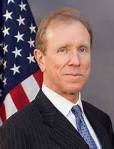 On Thursday the 24th, Keith Higgins, Director of the Division of Corporation Finance, gave his testimony on the Division’s recent “activities and responsibilities” to the House of Representatives Committee on Financial Services’ Capital Markets Subcommittee. Among the topics addressed by Mr. Higgins during his testimony were the Division’s activities and responsibilities in relation to JOBS Act rulemaking and the definition of “accredited investor.”
On Thursday the 24th, Keith Higgins, Director of the Division of Corporation Finance, gave his testimony on the Division’s recent “activities and responsibilities” to the House of Representatives Committee on Financial Services’ Capital Markets Subcommittee. Among the topics addressed by Mr. Higgins during his testimony were the Division’s activities and responsibilities in relation to JOBS Act rulemaking and the definition of “accredited investor.”
Higgins actual testimony with respect to the current status of JOBS Act rulemaking (and many other matters) amounted to little more than “we’re working on it.” He noted that the SEC has received numerous comment letters to date with respect to its final/proposed rules under Titles II, III and IV of the JOBS Act (particularly with respect to Title II where over 860 letters have been received). Higgins went on to say that the Division is currently preparing recommendations for the SEC with respect to these rules.
The most interesting part of this testimony however came during the “Question and Answer” portion. Several representatives took this opportunity to voice their frustrations and/or suggestions regarding the status of JOBS Act rulemaking and the SEC’s review of the “accredited investor” definition. Among the highlights are:
 Representative Robert Hurt, who voiced his concerns over the slow pace of JOBS Act rule making (particularly at a time of high unemployment) and asked when we would see the remaining JOBS Act reforms being implemented. Higgins could only respond that the SEC was still preparing recommendations with respect to such implementation.
Representative Robert Hurt, who voiced his concerns over the slow pace of JOBS Act rule making (particularly at a time of high unemployment) and asked when we would see the remaining JOBS Act reforms being implemented. Higgins could only respond that the SEC was still preparing recommendations with respect to such implementation.
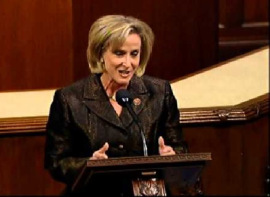 Representative Ann Wager, who noted that “savings and loans” were inadvertently not addressed in the JOBS Act and asked what the SEC was doing to remedy this oversight. Higgins responded that the issue was being addressed and that he expects a proposal to be issued by year end. Representative Wagner also asked Higgins what the Division plans to do with the recent recommendations it collected from its Small Business Forum on Capital Formation (for some of the highlights of these recommendation click HERE). Higgins responded that none of the recommendations had a “high priority” attached to them but that several of the recommendations were currently being taken into consideration.
Representative Ann Wager, who noted that “savings and loans” were inadvertently not addressed in the JOBS Act and asked what the SEC was doing to remedy this oversight. Higgins responded that the issue was being addressed and that he expects a proposal to be issued by year end. Representative Wagner also asked Higgins what the Division plans to do with the recent recommendations it collected from its Small Business Forum on Capital Formation (for some of the highlights of these recommendation click HERE). Higgins responded that none of the recommendations had a “high priority” attached to them but that several of the recommendations were currently being taken into consideration.
 Representative Steve Stivers, as a follow up to Wagner’s comments, who asked Higgins how many of the forum’s recommendations had been acted on in the past. Higgins could not specify other than to say that a number of them made it into the JOBS Act in some form. Stivers rebutted that he felt the only reason those recommendations made it into the JOBS Act was to fill the holes caused by the SEC’s failure to act and urged Higgins to listen to the forum’s recommendations.
Representative Steve Stivers, as a follow up to Wagner’s comments, who asked Higgins how many of the forum’s recommendations had been acted on in the past. Higgins could not specify other than to say that a number of them made it into the JOBS Act in some form. Stivers rebutted that he felt the only reason those recommendations made it into the JOBS Act was to fill the holes caused by the SEC’s failure to act and urged Higgins to listen to the forum’s recommendations.
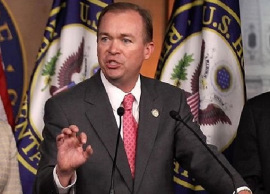 Representative Mick Mulvaney, who expressed his frustration over the fact that the SEC worked to issue final rules regulating “conflict minerals” under the Dodd Frank Act before completing JOBS Act implementation, referring to it as “patently absurd” and a “case of misplaced priorities.” Mulvaney also asked Higgins whether he felt that the current $500,000 capital raise “audit” threshold would positively or negatively impact access to capital through crowdfunding. Higgens responded that the current threshold was suggested by Congress and that SEC was considering raising the amount.
Representative Mick Mulvaney, who expressed his frustration over the fact that the SEC worked to issue final rules regulating “conflict minerals” under the Dodd Frank Act before completing JOBS Act implementation, referring to it as “patently absurd” and a “case of misplaced priorities.” Mulvaney also asked Higgins whether he felt that the current $500,000 capital raise “audit” threshold would positively or negatively impact access to capital through crowdfunding. Higgens responded that the current threshold was suggested by Congress and that SEC was considering raising the amount.
 Representative John Carney, who asked whether the initial public offering (IPO) “onramp” process included in the JOBS Act (and the ability of emerging growth companies (EGCs) to “test the waters” by issuing reports to potential investors) was actually being used. Higgins responded that implementation of the process was slow at first due to investor apprehension but that he believes the process is now being used regularly and without issue.
Representative John Carney, who asked whether the initial public offering (IPO) “onramp” process included in the JOBS Act (and the ability of emerging growth companies (EGCs) to “test the waters” by issuing reports to potential investors) was actually being used. Higgins responded that implementation of the process was slow at first due to investor apprehension but that he believes the process is now being used regularly and without issue.
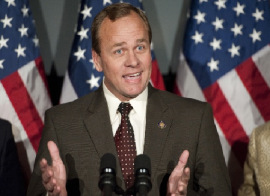 Representative Stephen Fincher, who reported hearing that the SEC did not like the JOBS Act (particularly because it was a Congressional rather than an SEC action) and asked if Higgins felt that some SEC staffers had “turned a cold shoulder” to the Act. Higgins responded by saying that, to date, none of the SEC staffers had expressed such a sentiment to him.
Representative Stephen Fincher, who reported hearing that the SEC did not like the JOBS Act (particularly because it was a Congressional rather than an SEC action) and asked if Higgins felt that some SEC staffers had “turned a cold shoulder” to the Act. Higgins responded by saying that, to date, none of the SEC staffers had expressed such a sentiment to him.
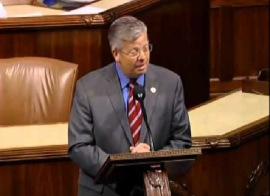 Representative Randy Hultgren, who addressed the SEC’s review of the definition of “accredited investor,” saying that linking the definition solely to income/net worth is “antiquated and counterproductive.” He also went on to ask Higgins if the SEC is considering letting people demonstrate their competence and investor sophistication in a manner similar to what is currently being done in the United Kingdom. Higgins only responded that the option was being considered by the SEC but gave no insight as to whether any such test would be adopted and/or what such test might look like.
Representative Randy Hultgren, who addressed the SEC’s review of the definition of “accredited investor,” saying that linking the definition solely to income/net worth is “antiquated and counterproductive.” He also went on to ask Higgins if the SEC is considering letting people demonstrate their competence and investor sophistication in a manner similar to what is currently being done in the United Kingdom. Higgins only responded that the option was being considered by the SEC but gave no insight as to whether any such test would be adopted and/or what such test might look like.
While the testimony did little to answer any of the current burning questions or concerns regarding the status of JOBS Act rulemaking or the SEC’s position on modifying the definition of “accredited investor,” the Q&A segment made it clear that those of us in the industry are not the only ones becoming frustrated with the SEC’s lack of action. Maybe the comments of the representatives will help to inspire the SEC to act … as usual we will have to wait and see.
For those inspired to watch the full 2 hour testimony, you can click below.
